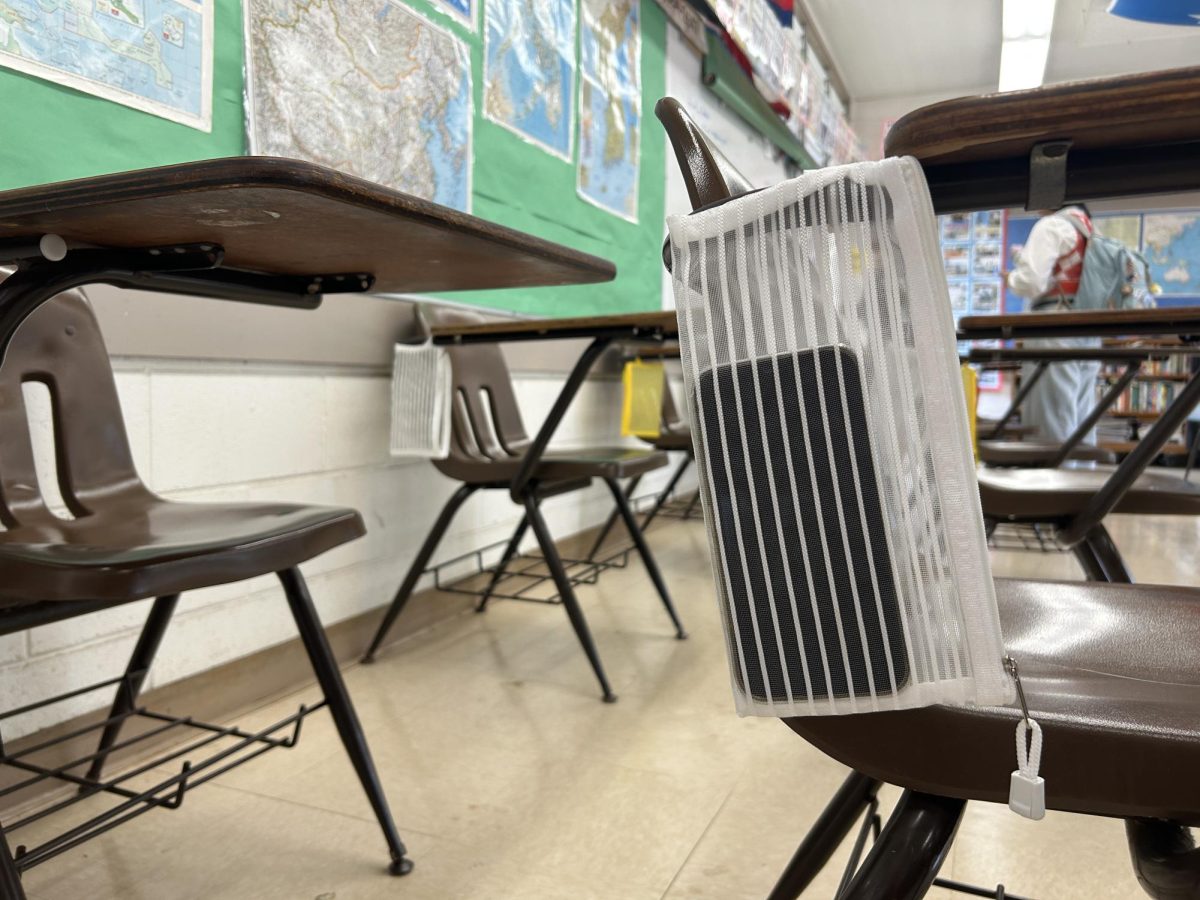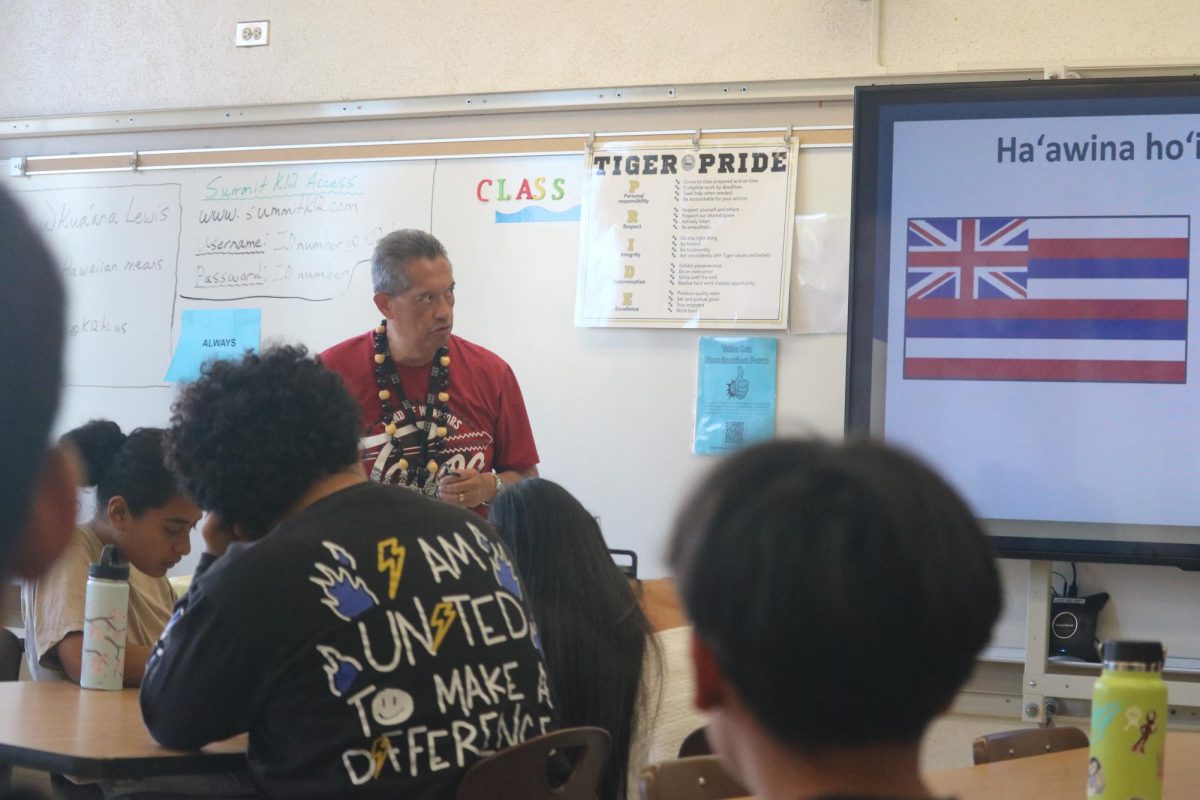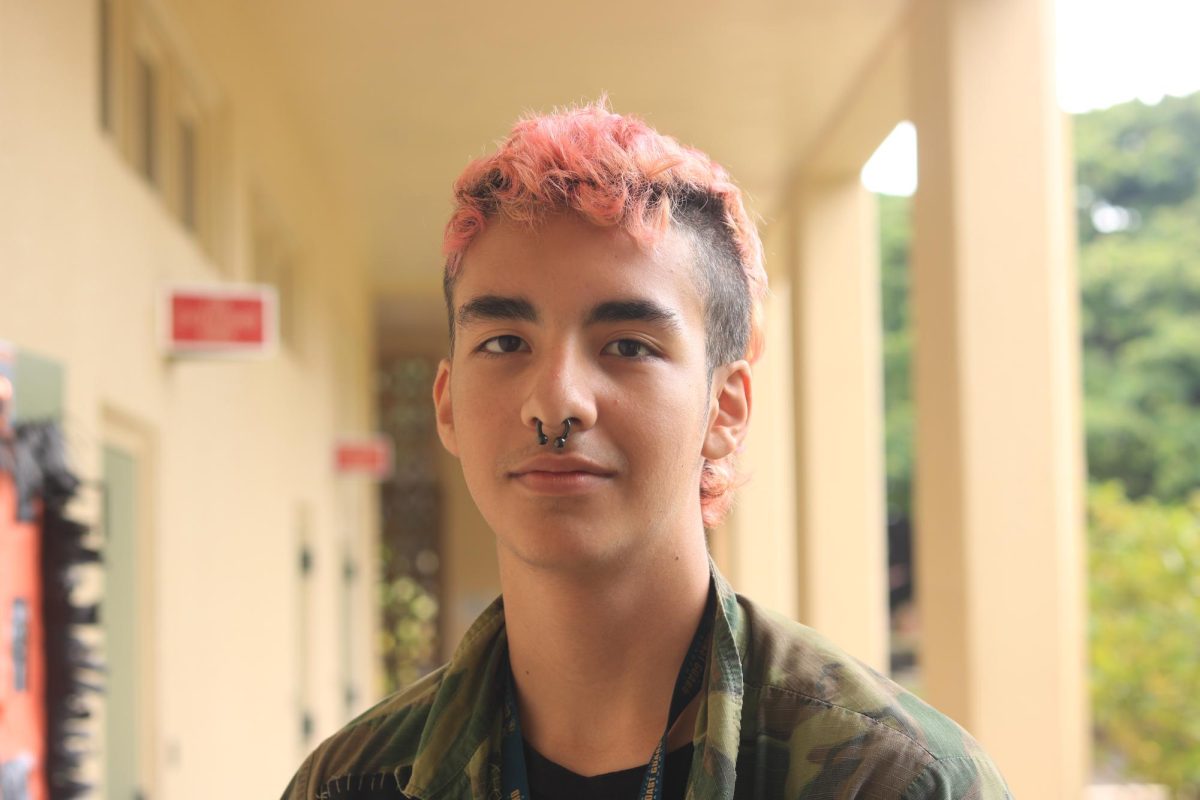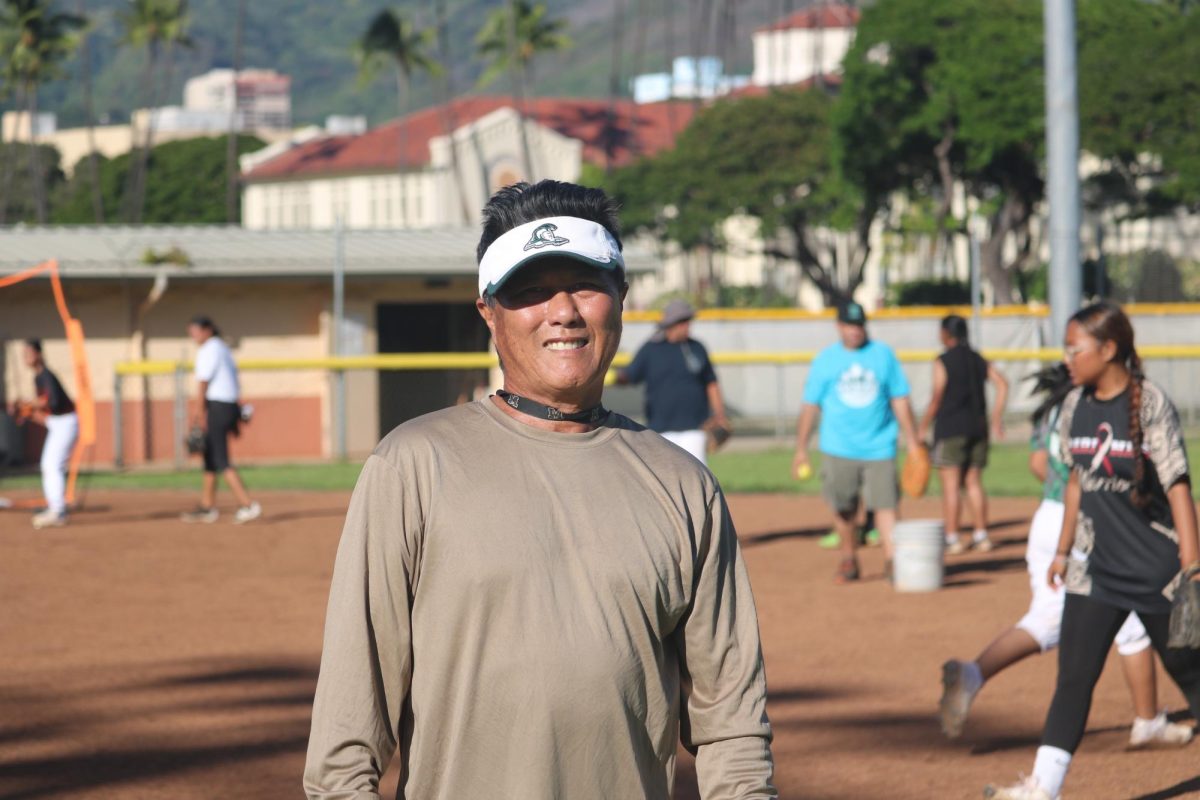This school year, more teachers at McKinley High School are implementing phone restrictions in classrooms, following a trend nationwide. There are already states on the mainland that are imple- menting phone usage restrictions
in classrooms. According to Excel In Ed, Florida legislation was the first to implement a ban on phone usage during instructional time.
The Pinion polled McKinley students about their thoughts on phone usage at school. Out of 234 responses, 203 students use their phones during school hours. Half of those students use their phones without their teacher’s permission. A majority of students said that phone usage during school hours is harmless.
What Do Students Say?
Andy Fong (c/o 2026) said he is in art classes. He said when he gets stuck on what to draw, he searches on the internet in class for inspiration.
“I think it’s helpful, but using it too much can kill imagination,” Fong said.
Phones are also used when students are in their core classes.
Fong said, “Sometimes I’m missing
a calculator, so I would use the calculator on my phone to fix a problem I need for math.”
This reliance on the internet can lead to discipline issues in the classroom.
“It could definitely change work habits as discipline turns into laziness because of the usage of the phone for a long period of time,” Fong said.
Tiger Le (c/o 2026) said during his sophomore year he used his phone a lot during class, which made him fall behind on his work. Le does not believe that using his phone during class changes his work habits.
“If your teacher isn’t available then what other resources do you have? The internet,” Le said.
What Does Administration Say?
However, Principal Ron Okamura, said that the administration team thinks about putting a mandate on phones “every day”.
“We would like to see some kind of across the DOE, some consistent rules or policies,” Okamura said.
Okamura sees dangers of phone usage regarding cyberbullying and fighting.
“We think about [phone mandates]
every day because there’s not a day where someone doesn’t come up and says ‘Look! Someone is bullying me,” Okamura said.
What Does Research Say?
Psychologist Jonathan Haidt wrote about the term phubbing in schools in his article “Get Phones Out of Schools Now,” which means ignoring one’s company in order to pay attention to one’s mobile device. Haidt has pointed out research that students who often phub, or are heavily addicted to their phones are more likely to be lonely or face mental health issues.
Haidt has also argued and started movements to make schools phone-free, as he made claims that phone usage even for class-related activities can still induce distractions.
What Do Teachers Say?
From a teacher’s perspective, using technology as a resource is understandable. Tenth grade Social Studies teacher Rajani Dhakwha Morita said that having
the internet at our fingertips helps us. However, Dhakwha also said that phone usage interferes with students’ social skills.
Dhakwha said, “I think it’s been very difficult after the pandemic for us to tear ourselves away from our phones, because that was like, almost an accessory or a limb”
“I think we all need to learn to just build better habits,” Dhakwha said. Dhakwha said, “I think most students are aware that there’s a time and place for their phones. However, I think it’s for teachers to help enforce the best learning environment that students actually want us to do.”
Tenth-grade Social Studies teacher Jonathan Loomis implemented a “phone jail” to his students’ desks this year. This is a little bag
zip-tied to the desk that students put their phones in during class. Loomis said he implemented this instead of a box so the students felt comfort- able that their phones were still with them. He also wanted the bags to be out-of-sight. Loomis said he implemented this to help with students’ self-control.
Math teacher Jason Yadao thinks phone usage in class is more about escapism rather than educational purposes.
“When I see students on their phones, as a teacher, I know that it’s a sign that they just don’t want to be
there,” Yadao said.
However, Yadao said there is a balance regarding phone usage, as there are positives and negatives to it. He said phones can be used for taking notes and pictures, but can also be a distraction.
Yadao said he also does not enforce a no-phone policy, but addresses phone usage when it disrupts the class.
Yadao said, “The things you do with your phone are supposed to enhance the things around you, not to distract.”











